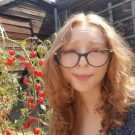
Savor: Is Wine Healthy?
The Science Behind the Glass / What the Experts Say
The Robert Mondavi Institute’s sold-out Savor Series event, hosted in partnership with the UC Davis Library, brought together a panel of experts in wine chemistry, cultural history, human medicine, and nutritional metabolism to tackle one of today’s most debated questions: Is wine healthy? What emerged was a fascinating conversation where science, robust culture, and history converged around a single glass.
Understanding the Research
Andrew Waterhouse, Ph.D., professor emeritus of Enology at UC Davis with 34 years of experience in research on the health effects of wine, moderated the event and explained how wine health research typically works. Most studies track large populations over years to identify patterns between drinking habits and health outcomes.
These studies can show that two things happen together, but they can’t prove one thing causes the other. For example, if people who drink wine in moderation live longer, the study shows a connection. But it doesn’t prove the wine caused them to live longer. Headlines often oversimplify this distinction. An article might say “alcohol causes cancer” when the study actually found “people who drink alcohol have higher rates of certain cancers.” The difference is significant.
Context is Everything
The challenge is compounded when health organizations handle data inconsistently. Dr. Laura Catena, a Harvard and Stanford-trained physician with 27 years in emergency medicine and a fourth-generation vintner at her family’s award-winning winery, Catena Zapata, highlighted this issue from both her medical and winemaking perspectives.
She discussed a review done by The National Academies linking moderate drinking to lower mortality and heart disease deaths, while noting trade-offs, including a small increased risk of breast cancer. She emphasized how statistics can be misleading. A “50% increase” in risk sounds dramatic, but if the baseline is 2%, it only rises to 3%.
She stressed the importance of understanding what “moderate” really means. “It’s not whatever you want it to be.” The recommended amount varies by person, and given these complexities, decisions should always be guided by a doctor. As Catena put it, “Moderation matters, but context is everything.”
Building on this point, Catena acknowledged the importance of recognizing that wine isn’t tobacco. Its effects are distinct, yet public perception is often muddied by misinformation and moral judgments. Unlike smoking, where there is no safe level, moderate wine consumption can be part of a healthy lifestyle, the keyword, as always, being moderate.
Cultural Reinvention
Lisa Jacobson, Ph.D., professor of history at UC Santa Barbara, reminded attendees that moderation itself is a cultural invention. The temperance movement and post-Prohibition wine marketing campaigns once positioned moderate drinking as a marker of gracious living and domestic harmony, rehabilitating wine’s image and distinguishing it from excess consumption. Today, cultural norms continue to shape the reputation of moderate drinking, influencing both sales and societal attitudes.
More Than a Drink
Sean Adams, M.S., Ph.D., scientific director for the UC Davis Center for Alimentary and Metabolic Science (CAMS), offered a nuanced look at the health effects of wine and its many components. He is one of the researchers actively exploring wine’s “dark matter,” the thousands of molecules beyond ethanol that interact with the human body.
Using cutting-edge multinomics research, Adams is revolutionizing how we think about food, wine, and wellness. When you sip wine, you're not just consuming ethanol; you’re ingesting a complex mix of molecules that trigger a symphony of chemical reactions throughout your body.
The Answer
So, is wine healthy? It depends on you, your body, your drinking patterns, and yes, your doctor’s advice. Wine exists in a complex web of culture, chemistry, and individual biology that makes simple answers impossible, but that’s what makes wine so endlessly fascinating, perpetually worthy of study, and absolutely perfect for bringing people together to explore big questions. Wine is a window into questions of health, history, and human connection.
Watch the Full Discussion
Missed the event? You can watch the full panel discussion and join this conversation about science, culture, and making informed choices about wine and health here.

Kaylianne Jordan is a junior transfer student studying Viticulture and Enology at UC Davis. She has a background in culinary arts and a passion for sustainable farming and enjoys exploring the connections between agriculture, winemaking, and community. Outside of college, she loves trying out new recipes, discovering local food spot.
